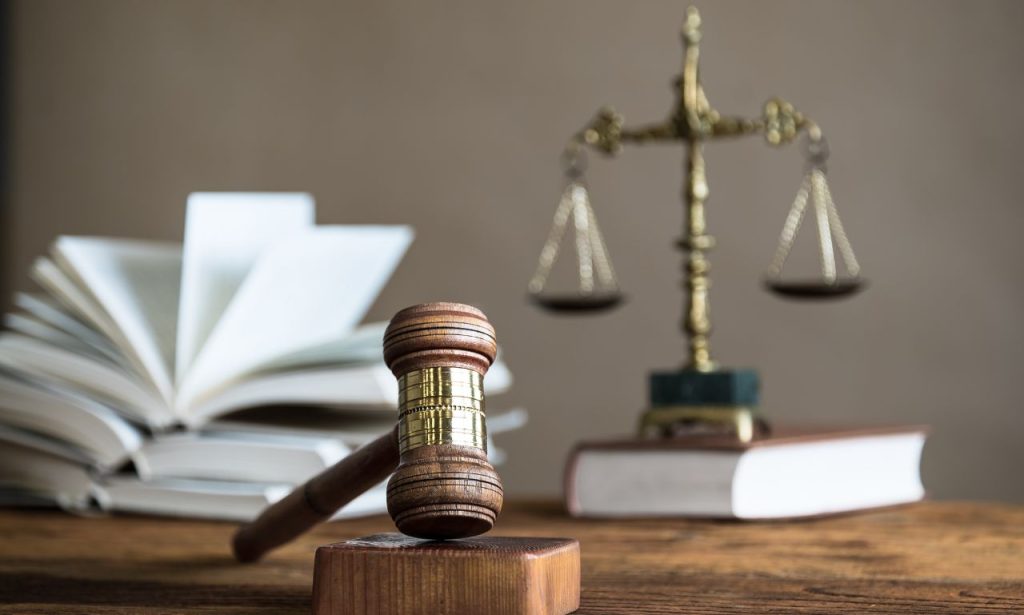Ever caught yourself wondering what could happen if a teen gets caught spray-painting a wall or smashing a mailbox? Vandalism might seem like a harmless prank to some, but for minors, the legal consequences can be quite severe and life-altering.
Legal Definition of Vandalism
At its core, vandalism is the willful or malicious destruction, defacement, or damage to someone else’s property without their consent. This doesn’t just include spray-painting graffiti on a building.
Breaking windows, slashing tires, carving into park benches, or even keying a car—all these acts fall under the umbrella of vandalism. If it causes damage to personal or public property and diminishes its value or appearance, it’s likely considered vandalism under the law.
Variations in Vandalism Laws by State

The legal repercussions for vandalism can vary dramatically from one state to another. What might be considered a minor offense in one state could bear harsher penalties in another. It’s crucial to understand how different jurisdictions handle these offenses, especially when minors are involved.
California Laws
In sunny California, the laws take property damage seriously. Under California Penal Code Section 594, vandalism is defined broadly and can be charged as either a misdemeanor or a felony, depending on the extent of the damage.
- Misdemeanor Vandalism: If the damage is less than $400, the offense is typically considered a misdemeanor. Penalties can include up to a year in a county jail, fines up to $1,000 (or up to $5,000 for those with prior convictions), and community service hours.
- Felony Vandalism: When the damage exceeds $400, the crime can be elevated to a felony. This is a big deal—felony charges can lead to imprisonment in state prison, substantial fines, and a mark on one’s record that can impact future opportunities.
For minors, the juvenile justice system focuses on rehabilitation. However, that doesn’t mean they get off easy. Penalties might include juvenile detention, probation terms, mandatory counseling, and financial restitution to victims. California also has specific graffiti laws that target those who deface property with graffiti or other inscribed materials. Repeat offenders can face even harsher penalties, including longer detention periods.
Pennsylvania Laws
Over in Pennsylvania, vandalism is framed under “criminal mischief” according to Title 18, Section 3304 of the Pennsylvania Consolidated Statutes. The state categorizes offenses based on the intent and the amount of property damage.
- Summary Offenses: Minor damages fall under summary offenses, which are the least severe charges but can still result in fines and a criminal record.
- Misdemeanor and Felony Offenses: As the value of the damage increases, so do the charges. Damages exceeding $5,000 can lead to third-degree felony charges.
For juvenile offenders, Pennsylvania’s juvenile justice system emphasizes balanced and restorative justice. The aim is to hold the juvenile accountable while promoting community protection and competency development. Punishments can include community service, restitution, probation, or placement in a juvenile detention facility.
Penalties and Consequences for Minors
When minors engage in acts of vandalism, the justice system doesn’t just slap them on the wrist. The consequences can be multi-faceted, affecting both the offender and their family.
Financial Restitution
One of the first penalties a minor might face is financial restitution. This means paying back the property owners for the damage caused. Whether it’s repairing a defaced wall or replacing a broken window, these costs can add up quickly. In many cases, parents or guardians are held financially responsible under parental liability laws, which can strain family finances.
Fines
Apart from restitution, courts often impose fines as a punitive measure. These fines serve as a deterrent, reinforcing that vandalism isn’t a victimless crime. The amount can vary based on the severity of the offense and prior criminal history.
Probation Terms
Probation is a common consequence for juvenile offenders. Under probation terms, a minor might have to:
- Adhere to a curfew
- Attend school regularly without unexcused absences
- Meet regularly with a probation officer
- Avoid contact with certain individuals or places
- Participate in counseling or educational programs
Violating probation conditions can lead to more severe penalties, including detention.
Detention and Incarceration
For serious offenses or repeat offenders, minors might face time in a juvenile detention center. This isn’t just a summer camp—it’s a restrictive environment meant to rehabilitate but also punish. The length of stay can vary from a few days to several months, impacting the minor’s education and social life.
Severity of Offenses and Impact on Punishment
Not all vandalism is created equal. The justice system considers several factors when determining punishments:
- Extent of Damage: Greater damage often leads to harsher penalties. Destroying a mailbox is one thing; causing thousands of dollars in damage to a public building is another.
- Type of Property: Damaging public property, such as government facilities or schools, can escalate the severity. Institutional vandalism is taken very seriously.
- Previous Offenses: First-time offenders might receive leniency, while those with prior vandalism convictions could face stricter consequences.
- Gang Involvement: If the act is linked to gang activity, “gang enhancement” laws can increase penalties.
- Hate Crimes: Vandalism motivated by bias or hate can lead to additional charges under hate crime statutes.
Diversion Programs for Juveniles
Many jurisdictions recognize that rehabilitation is often more effective than punishment for minors. Diversion programs aim to redirect juvenile offenders away from the traditional justice system.
These programs might include:
- Community Service: Performing hours of community service allows minors to give back and understand the value of contributing positively.
- Counseling and Education: Programs that address underlying issues such as anger management, substance abuse, or family problems.
- Restitution Efforts: Facilitating apologies or mediation sessions between the offender and the victim.
- Skill-Building Workshops: Teaching job skills, responsibility, and decision-making.
Successful completion can result in charges being reduced or dismissed, helping the minor avoid a criminal record.
Long-term Consequences of Vandalism Charges
A moment of reckless behavior can cast a long shadow over a young person’s future.
Implications for Juvenile Records
While juvenile records are often sealed, they aren’t always inaccessible. Certain scenarios can bring past offenses to light:
- College Admissions: Some colleges ask about criminal histories, and a record can impact admissions decisions.
- Employment Opportunities: Certain jobs, especially those requiring security clearances or working with vulnerable populations, may be off-limits.
- Military Service: The military conducts thorough background checks, and a vandalism conviction can be a red flag.
Parental Liability
Parents might find themselves on the hook not just financially but also legally. Failing to supervise a child adequately can lead to civil lawsuits from victims seeking damages. Moreover, strained family relationships can develop when a minor’s actions lead to significant financial burdens.
Defense Strategies for Minors Accused of Vandalism
Being accused isn’t the same as being convicted. There are defense strategies that can mitigate or eliminate the consequences.
Role of Criminal Defense Attorneys
A seasoned criminal defense attorney can make a world of difference. They can:
- Challenge Evidence: Question the validity or legality of the evidence. Was there a wrongful arrest? Is there proof beyond a reasonable doubt?
- Negotiate Plea Deals: Work with prosecutors to reduce charges or recommend alternative sentencing like diversion programs.
- Present Mitigating Factors: Highlight circumstances like lack of intent, mistaken identity, or the minor’s positive background.
- Protect Legal Rights: Ensure the minor’s rights are upheld throughout the legal process.
Importance of Legal Representation
Having proper legal counsel is vital. Navigating the complexities of vandalism laws without expertise can lead to unfavorable outcomes. An attorney understands the nuances, from vandalism statutes to potential penalties, and can craft a compelling defense.

Families aren’t just bystanders in this process—they’re integral.
- Emotional Support: The stress of legal proceedings can take a toll on a minor. Parents and guardians providing emotional backing can help the juvenile cope better.
- Active Involvement: Attending court hearings, meetings with legal counsel, and being present shows the court that the minor has a support system.
- Reinforcing Positive Behavior: Encouraging the minor to participate in community service, counseling, or educational programs can reflect positively during sentencing.
Parental involvement can sometimes influence the court’s decisions, potentially leading to lighter sentences or alternative punishments focused on rehabilitation.
Facing a vandalism charge as a minor is daunting, but it doesn’t have to define one’s future. With the right support and legal guidance, it’s possible to navigate this challenge and move forward positively. Don’t wait—reach out to an experienced criminal defense lawyer today to protect your child’s rights and future.
ALSO READ: Law Books for Attorneys
FAQs
In some states, vandalism convictions can result in the suspension or delay of a minor’s driver’s license. This is particularly common in cases involving graffiti offenses. It’s a way for the justice system to enforce consequences that resonate with teenagers.
Yes, schools can impose disciplinary measures if the off-campus behavior affects the school community or violates the student code of conduct. This could include suspension, expulsion, or being barred from extracurricular activities.
Absolutely. Many communities offer programs focused on art therapy, restorative justice, and community beautification projects. These programs aim to channel the minor’s energies into positive outlets and foster a sense of responsibility.
Being present at the scene can still have legal implications. An attorney can argue for dismissal if the minor didn’t participate. However, knowledge of the act and failure to report it can sometimes lead to charges like conspiracy or accessory. Legal representation is crucial to navigate these nuances.




